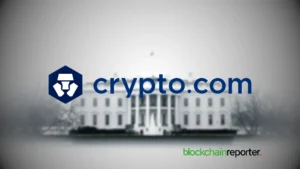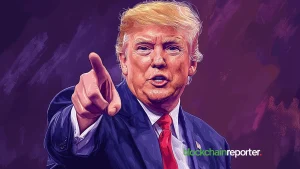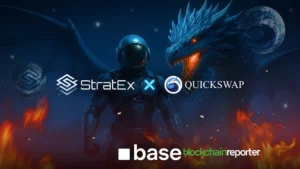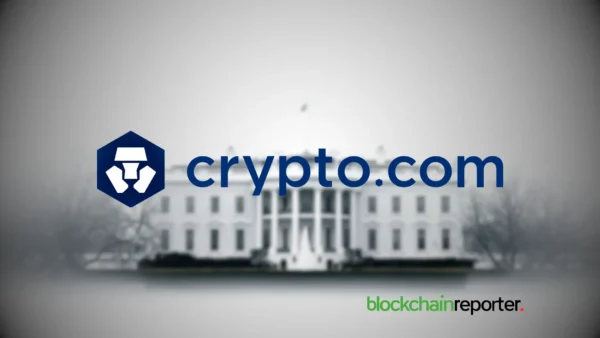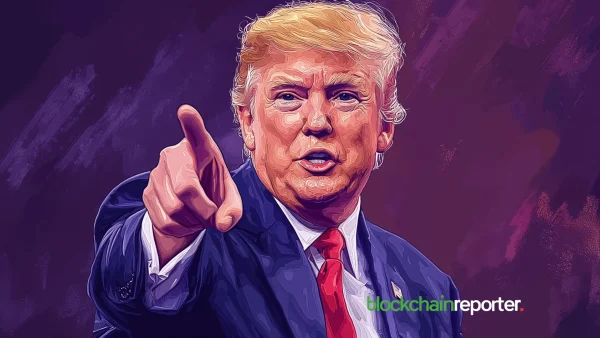
- 1. Grayscale Submits Revised Bitcoin ETF Application After SEC Consultation
- 2. Tether Treasury Generates $1 Billion in USDT, Says Lookonchain
- 3. Philippines Pioneers Blockchain for Digital Money in Government Securities
- 4. CEO Changpeng Zhao Admits Violations, Faces Massive Penalties
- 5. SEC Targets Kraken under Allegations of Unregistered Operations and Fund Mismanagement
This week, we have observed significant developments and challenges in the cryptocurrency landscape. The sector experienced notable regulatory movements, technological advancements, and strategic initiatives, reflecting the ever-evolving nature of the cryptocurrency market. After consultations, Grayscale submitted a revised application to the SEC to launch a Bitcoin exchange-traded fund (ETF). On the other hand, with a prominent investor accumulating USDT, the Tether Treasury has created $1 billion. Meanwhile, the Philippines pioneered blockchain and digital currency usage in financial innovation. Its breakthrough tokenized Treasury bonds demonstrate this. The country also has strategic partnerships with Coins.ph and Paxos Trust Company to boost digital finance.
However, the most shocking events unfolded on the 21st and 2nd of this month. In a surprising turn of events, Binance and its CEO Changpeng Zhao admitted to violating anti-money laundering laws and US penalties. Thus, they face severe financial and regulatory penalties. The Securities and Exchange Commission (SEC) now regulates Kraken for unregistered operations and mishandling of consumer cash. The above advances show that the cryptocurrency market is dynamic, with regulatory scrutiny, technological advancement, and strategic efforts determining its destiny. Let’s check out these pieces in detail.
Grayscale Submits Revised Bitcoin ETF Application After SEC Consultation
After consulting with the SEC, Grayscale submitted a revised Bitcoin ETF application. The changes are minor, but the suggested change of the GBTC ticker symbol to BTC matches Grayscale’s strategic outlook. This effort will raise product awareness and reach more investors. Bloomberg researcher James Seyffart noted major changes to Grayscale’s filing, highlighting the company’s commitment to an Exchange-Traded Fund. Cash order optimization and risk disclosure page removal are among the changes. Grayscale’s deliberate decision to cross-reference risk variables in regulatory filings shows a commitment to compliance and investor communication.
Seyffart believes Grayscale’s ETF strategy remains consistent despite the updated filing’s minor changes. This shows Grayscale’s dedication to overcoming regulatory hurdles to launch a Bitcoin ETF in the ever-changing cryptocurrency investing world.
Tether Treasury Generates $1 Billion in USDT, Says Lookonchain
Lookonchain reports that Tether Treasury recently generated $1 billion in USDT, a popular stablecoin. A prominent investor is actively accumulating USDT, which has increased its supply. Whale financial activities involve receiving and transferring USDT. The investor reportedly bought 1.13 billion USDT from Tether Treasury over 32 days. These funds were then placed into other cryptocurrency exchanges.
Additional investigation shows that Tether Treasury gave the whale entity 75 million USDT before the billion-dollar coinage. Blockchain exchanges like Kraken and Coinbase received these funds. The investor has received approximately 1 billion USDT from Tether Treasury since October 20, indicating a considerable increase in Tether’s stablecoin’s presence in the cryptocurrency trading environment. This pattern shows the growing prominence of major cryptocurrency market players and the fluidity of cryptocurrency assets including Bitcoin, Ethereum Cardano, etc., where large transactions can quickly change supply and demand.
Philippines Pioneers Blockchain for Digital Money in Government Securities
The Philippines is implementing blockchain and digital currencies, like Bitcoin, Ethereum, XRP, and Cardano, to improve its financial infrastructure and digital finance. The Bureau of the Treasury and the Central Bank of the Philippines are working together to introduce digital money for government securities, a groundbreaking move. This program explores blockchain technology. Using the Distributed Ledger Technology Registry, the Philippines issued its first tokenized Treasury bonds, raising 15 billion pesos ($271 million).
The popular cryptocurrency exchange Coins.ph has partnered with the Paxos Trust Company to improve the nation’s digital finance landscape. This initiative aims to increase PayPal USD (PYUSD) use for secure cross-border transactions. This strategic partnership shows the Philippines’ growing interest in digital currencies. It provides a convenient and reliable option for Filipino cross-border remittance managers. The Philippines leads Southeast Asian digital finance by integrating blockchain technology and digital currencies into its financial infrastructure.
CEO Changpeng Zhao Admits Violations, Faces Massive Penalties
In an unexpected move, Binance and its CEO Changpeng Zhao have admitted to anti-money laundering and US sanctions violations. The unprecedented plea agreement with the DOJ fines Binance $4.3 billion and Zhao $200 million. Zhao resigned as CEO as part of the settlement. The suspect faces charges of money laundering, conspiracy to operate an unlicensed money transmission business, and US sanctions violations. Binance has admitted to failing to prevent and disclose suspicious transactions, including those linked to global terrorist organizations.
Iranian users were involved in Binance transactions over $890 million, according to court data. Iran faces strict US financial sanctions. The exchange allowed US customers to interact with other sanctioned countries like Cuba, Syria, and illegally occupied Ukraine. The US Attorney General, Merrick Garland, noted that using novel technology to break the law does not make one a disruptive force, but rather a criminal.
SEC Targets Kraken under Allegations of Unregistered Operations and Fund Mismanagement
The SEC has increased its oversight of crypto exchanges, with Kraken becoming the latest. The San Francisco exchange is accused of misusing consumer funds and operating without registration. The SEC lawsuit claims Kraken acted as an unlicensed broker, clearing agency, and dealer, confusing consumer and corporation assets. The regulatory authority claimed Kraken mixed customer digital assets like Bitcoin and Ethereum, worth up to $33 billion, with its own. Additionally, Kraken allegedly used consumer cash payments for operational expenses.
According to the Securities and Exchange Commission’s recent legal actions against Binance and Coinbase, the cryptocurrency industry is placing more focus on regulatory compliance. The SEC has listed Kraken-pushed tokens like Algorand, Polygon’s MATIC, and NEAR as unregistered securities. The Securities and Exchange Commission (SEC) wants to permanently ban Kraken’s unlicensed exchange activity, levy financial penalties, and require profit returns. Kraken strongly denies the claims, emphasizing its non-involvement in securities listing and working for US crypto market legal clarification.
